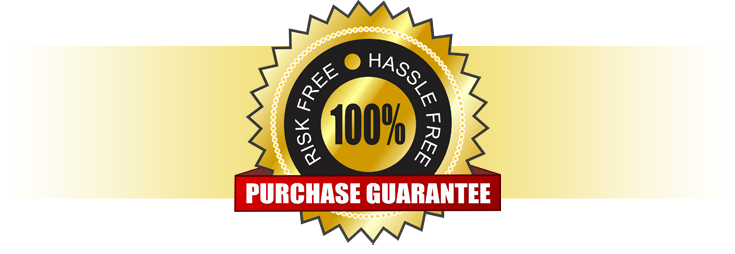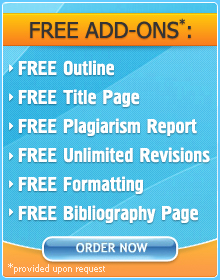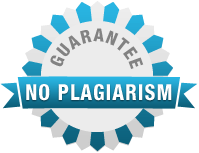Look at the theories in your text, think about the many concepts in those theories, and reflect on the values, beliefs, and principles that were part of your nursing education and are part of your nursing practice. All of these make up the dominant metaparadigm of nursing (Parker & Smith, 2015).
Within any profession, there must be a consensus about the concepts of the metaparadigm. For a nursing theory to comprehensively reflect the profession of nursing, each of the key concepts must be addressed, explained, and applied to practice. In doing so, research ideas may be generated, resulting in knowledge development. Once the metaparadigm concepts are agreed upon, theory and knowledge development have organization or a central theme.
Several nursing theorists developed different variations of terms and concepts for the metaparadigm. For professional nursing, consensus in the literature identifies person, environment, health, and nursing as being the concepts within our metaparadigm (Parker & Smith, 2015). This is the most commonly accepted metaparadigm and was initially developed by Fawcett in 1978 and revised in later years.
Metaparadigm Click each term and review the definition
Nursing Person Health Environment
Background
Jaqueline Fawcett, RN, PhD, ScD (hon), FAAN, ANEF was the original theorist who identified the nursing metaparadigm. What follows is an interview with Dr. Fawcett conducted on July 2011 by a professor of nursing as part of a learning activity for an online nursing course.
The Interview
Rebecca Lee (RL): Would you please share with the students your own educational pathway to nursing?
Jacqueline Fawcett (JF): I earned a baccalaureate degree in nursing in 1964, a master’s degree in parent-child nursing with a minor in nursing education in 1970, and a PhD in nursing in 1976.
RL: What originally inspired you to develop the metaparadigm concepts?
JF: I was asked to present a paper, “The What of Theory Development,” at a conference sponsored by the National League for Nursing in 1977 (Fawcett, 1978). Viewed through the lens of Kuhn’s (1970) work on the structure of scientific revolutions, Dubin’s (1969) idea of the central concepts of a discipline became nursing’s central concepts, which evolved into the concepts of the metaparadigm of nursing (Fawcett, 2005).
RL: How did these concepts influence the discipline of nursing, both at the time of creation and in the years since?
JF: The metaparadigm concepts, indeed the very idea of a metaparadigm of nursing, influences nurses’ understanding of what nursing is, and especially their understanding that nursing is an intellectual discipline and not only skills used in the care of people who are sick. I believe that a considerable amount of nurse burnout could be reduced if nurses took the time to step back from their concrete clinical practice activities and examine their practice from an abstract theoretical perspective. One theoretical perspective is the concepts of the metaparadigm of nursing. I think that in doing so, nurses will begin to realize that nursing is an intellectual enterprise that encompasses clinical practice activities that are guided by theoretical rationale. Thinking in this way requires nurses to embrace change, which can be scary! But all of us must be willing to take the risks that are inherent in change to grow.
RL: How have your original metaparadigm concepts evolved over the years?
JF: The central concepts I included in my 1978 paper (Fawcett, 1978) were man, society, health, and nursing. Later, I changed man to person in the interests of gender-neutral language, and I changed society to environment in the interests of a broad perspective of the surroundings of nurses and nursing participants. The most recent change, from person to human beings, was in response to the critique that person is not recognized in some cultures. I described these changes in detail in my book, Contemporary nursing knowledge: Analysis and evaluation of nursing models and theories (Fawcett, 2005). In that book, I also present other versions of the metaparadigm concepts offered by several nurse scholars There has been some discussion as to whether “nursing” is a tautological concept within the metaparadigm of nursing. However, I have maintained that the inclusion of nursing as a distinct metaparadigm concept is necessary to capture the notion of the definition, goals, and processes of nursing.
RL: Would you please discuss the relevance of the metaparadigm concepts to the profession of nursing in 2011, and beyond?
JF: The concepts of the metaparadigm of nursing, whether my version or another version, are as relevant today as at any other time in nursing’s history, because they are a way to identify what are the boundaries and scope of the knowledge of nursing. Specifically, the metaparadigm concepts identify the global areas of knowledge needed for nursing at the bedside and in administration, education, and research. Individuals who might dismiss the idea of a metaparadigm of nursing as dated should consider their position carefully. For if people do not accept that there is a body of knowledge that constitutes nursing that is distinctive and different from other disciplines, then they do not have the right to say that they are practicing a profession or that they are members of a professional discipline. Instead, they are functioning as trades people.
RL: Could you share with us your own vision for the future of professional nursing?
JF: I regret that I am not optimistic. Too often, we behave as if we are members of a trade rather than of a professional discipline by ignoring the metaparadigm of nursing and by denying the utility of nursing’s discipline-specific knowledge. Instead, we willingly assume tasks and functions given to us by physicians who would rather not bother with certain tasks and functions. See, for example, Sandelowski’s (1999) seminal paper about the history of intravenous nursing.
RL: In closing, do you have any advice for my students as they embark on their educational journey?
JF: Keep going! Don’t be afraid to envision possibilities in your own future. That takes courage! You will no doubt reach a point at which you want more education, so it is best to pursue that education while you are used to being a student. Above all, have the faith of your convictions and don’t be afraid of being alone.
(Lee, & Fawcett, 2013, p. 96-97).
The focus of this week’s content can be summarized by the following question: “Should the nature of nursing knowledge be abstract or concrete?” To answer this question, the following questions need to be considered first:
· How can something abstract be useful at the bedside?
· How can something concrete consider all of the diversity of possible nursing care situations with individuals, families, and communities?
Theory
Consider the following questions: “Should the nature of nursing knowledge be abstract or concrete?”
To answer this question, the following questions need to be considered first:
· How can something abstract be useful in nursing practice?
· How can something concrete consider all of the diversity of possible nursing care situations with individuals, families, and communities?
· How can something concrete consider different roles and practice settings of nurses?
[meteor_slideshow slideshow="slide3"]
Are you looking for a similar paper or any other quality academic essay? Then look no further. Our research paper writing service is what you require. Our team of experienced writers is on standby to deliver to you an original paper as per your specified instructions with zero plagiarism guaranteed. This is the perfect way you can prepare your own unique academic paper and score the grades you deserve.
[meteor_slideshow slideshow="slide2"]Use the order calculator below and get ordering with idealtermpapers.com now! Contact our live support team for any assistance or inquiry.
[order_calculator]






 info@idealtermpapers.com
info@idealtermpapers.com






